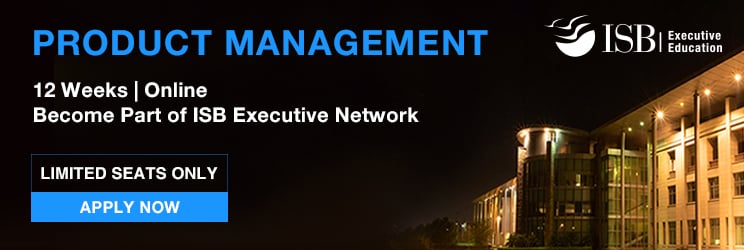What are the Ideal Learning Outcomes of an Effective Product Engineering Course?

- What is Product Engineering? How is it Different From Product Management?
- How Important is Product Engineering in the Product Development Process?
- What are the Ideal Learning Outcomes of a Good Product Engineering Course?
- What are Some of the Essential Skills That a Product Engineering Course Can Help Learners Develop?
- How Can a Product Engineering Course Help You Build a Career as a Product Manager?
- Learn Product Management and Development With Emeritus
While a great idea in business is valuable, without proper management and attention, even the best ones can quickly wither and die. This is where product engineering practices come in. It is the comprehensive process of developing and maximizing a product’s value throughout its lifecycle. By taking up a good product engineering course, you can learn how to build great products that stand the test of time.
All products have a natural lifecycle, from inception to maturity and their eventual replacement. Product managers interact with the audience and try to identify the problems they face throughout the lifecycle. On the other hand, product engineers try to solve user problems by creating a valuable product.
To succeed in the product engineer’s role, one must have a wide range of skills and knowledge to deal with complex product-related problems. Therefore, it requires training and development. This article focuses on understanding the learning outcomes of a product engineering course and how it prepares one to handle daily tasks.
What is Product Engineering? How is it Different From Product Management?

Product engineering is the comprehensive process of turning an idea into a full-fledged product with features and capabilities to fulfill user needs. It is divided into phases, with members from different departments working together to create a manufacturable product. For instance, while creating a product, Computer-Aided Design (CAD) development engineers work on the hardware design, and software engineers work on the product’s software.
For a layperson, everything related to production is product management. However, for product experts, product management is an umbrella term for processes associated with producing and marketing products or services. While product management primarily focuses on learning the users’ needs and communicating those to the designers and engineers, product engineering involves knowing the technical ins and outs of product development to fulfill the company’s product goals.
ALSO READ: What are Professionals Looking for in the Best Product Management Courses?
How Important is Product Engineering in the Product Development Process?
Product development involves stages like product conceptualization, manufacturing, and production. Product engineering is a vital part of the product development process. It brings automation to manufacturing, which helps in the following:
- Upgrading the quality of the product
- Increasing the capability of rapidly implementing new features
- Integrating the latest software and technology into production
Furthermore, product engineering has a say in different stages of product development. For instance, they interact with market researchers to understand customer pain points and add features to elevate the user experience.
What are the Ideal Learning Outcomes of a Good Product Engineering Course?
A good product engineering course aims to familiarize learners with the principles and applications of various theories and techniques necessary for maximizing product performance. These courses also equip learners with various skills that increase their efficacy in generating ideas, designing products, creating prototype models, quality testing, material selection, product costing, and lifecycle management.
Besides that, here’s what you will learn in a good product engineering course:
- Enhances capability to use theoretical knowledge like product engineering concepts and techniques in production.
- It equips learners with professional, analytical, and management skills and develops their technical skills and knowledge. Furthermore, learners will improve their soft skills like critical thinking, problem-solving, and communication.
- Good product engineering courses teach learners to use the latest technologies in the product engineering process for automation and increased efficiency.
- At the end of the product designing course, learners will have a detailed understanding of different product development stages. They will also learn to define, create, and use relevant data for the product engineering and manufacturing phases.
What are Some of the Essential Skills That a Product Engineering Course Can Help Learners Develop?
Aspiring product engineers need a strong and diverse set of skills to stay competitive in the job market. Joining a product engineering course helps aspirants develop these essential skills; let’s look at some of the technical skills.
- Excellent knowledge of product lifecycle management and development software. Furthermore, product engineering courses will help learners better understand AutoCAD, SPA frameworks, and Microsoft Office applications.
- Taking product engineering courses equips aspirants with comprehensive coding languages like HTML, CSS, and JavaScript. Additionally, these courses develop a strong knowledge of databases and operating systems.
- Enrolling in a product engineering course helps aspirants learn and understand the latest development practices, software, and technologies.
Besides these technical skills, aspirants can develop the below-mentioned non-technical skills by joining a product engineering course.
- Collaboration skills
- Critical thinking skills
- Problem-solving abilities
- Effective communication skills
- Negotiation skills
ALSO READ: How to Build a Successful Career as a Product Design Engineer: A Guide
How Can a Product Engineering Course Help You Build a Career as a Product Manager?

Product managers lead the product development process. Generally, they do many things with little to do with product development. That’s mainly because organizations expect them to be an all-rounder who can become a technical evangelist. Therefore, a product engineering course can help product managers increase their technical expertise. It helps them understand the technology behind creating a product. Moreover, it makes them a force to reckon with, scaling their career prospects.
Learn Product Management and Development With Emeritus
Emeritus’ product management courses will help today’s workforce acquire crucial skills pertinent to product ideation, development, and testing. This learning experience will give learners a deeper understanding of conceptualizing innovative products with customers as the focal point.




